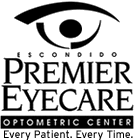Eye injuries come in many shapes and sizes, some more serious than others. Some might require emergency action and immediate care by an optician, while others can be taken care of at home. Read this guide to routine eye injuries, to determine your next step in case of an eye emergency. Keep in mind that general safety protections including wearing protective glasses may be the best way to ensure healthy eyes.
An example of an injury that should be treated seriously is a scratched eye. It can cause serious damage in a short amount of time and possibly result in vision loss. Abrasions are commonly the result of a poke in the eye, or scratching the eye when there is sand in it. Since a scratch can make your eye susceptible to bacterial infection it's very important that you call your optometrist or an emergency room. The best care for a corneal abrasion is to cover it loosely and to see your eye doctor immediately to make sure it is isn't infected. Touching the eye will only cause greater damage and patching the eye provides the perfect environment for bacteria.
Knowing what to do if you have been splashed in the eye by a chemical is very important. First, you should rinse your eye out by putting your head under a steady stream of barely warm water for about a quarter of an hour. Next call your eye care practitioner or an urgent care center to find out what they suggest for such injuries. Be sure to inform the doctor precisely what substance got into your eye and what you're doing. If you're experiencing extreme blurriness, go straight to your eye care practitioner or an urgent care office after rinsing it with water. Chemical encounters with the eye can cause a variety of injuries, from minor irritation to severe harm and potentially blindness.
While it is sometimes unpleasant to think about an eye injury, it's always good to know what to do in potentially hazardous circumstances. By being prepared you can rest assured that you'll be ready to handle most routine eye problems. Of course, extra safety protections can help prevent this type of injuries altogether so speak to your eye care practitioner about preventative eye care options!


*Closed daily for lunch between 1pm to 2pm